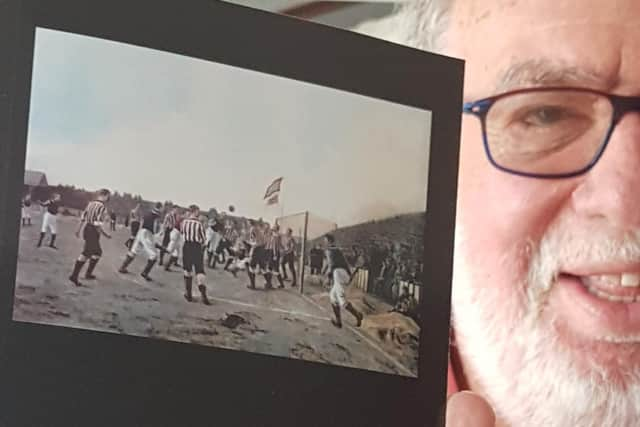How football took root in the North East - a Sunderland fan's historical insight into the beautiful game
and live on Freeview channel 276
Gavin Kitching’s work called A Fateful Love tells how soccer rose to become part of our lives from the late 1800s.
“If you were reading the newspapers in Newcastle or Sunderland around 1875 you would have struggled even to find the word ‘football’, and if you had, it would probably have been in a story about rugby not soccer,” said Gavin who is Emeritus Professor of Politics at the University of New South Wales in Sydney.
Advertisement
Hide AdAdvertisement
Hide Ad"But twenty years later, football reporting probably sold more papers in the North East than anything else, and that’s remained so until now.”


He told the Sunderland Echo: “I started it back in 2009, and because I live in Australia, it has involved a lot of flying back and forth to England and the North East.”
A Fateful Love tells the story of the extraordinary transformation of the region into a football adoring area, from the creation of Northumberland and Durham’s first football club (the Tyne club) in Newcastle in 1877, through to the first appearance of big football crowds, at Sunderland’s Newcastle Road ground, in the late 1880s and early 1890s.
Gavin added: “It also shows how, as the game spread and became popular, it was played differently. When ‘association football’ first appeared in the North East it was heavily influenced by old ‘folk’ forms of football, with forwards playing in a tight ‘pack’ formation and following the ball around the pitch, rather than having individual ‘positions’ and passing the ball between them.
Advertisement
Hide AdAdvertisement
Hide Ad"But that soon changed, as local players learned the new forms of play that were pioneered in Scotland and brought to the region by ‘elite’ teams from Scotland and elsewhere.


"Making soccer more dispersed in this way also made it exciting to watch, which was the main reason why it, and not rugby, became the dominant form of football in the region, despite rugby having arrived 7 years ahead of it.
“But A Fateful Love is not simply a history of the first playing of football in the North East. It also explains how the game’s exploding popularity affected the young men who played it, the clubs for which they played, and the local press in Sunderland and Newcastle.
"It also shows how, even before they became professionalised limited companies, the major football clubs in Newcastle and Sunderland had been transformed into commercial organisations. “
Advertisement
Hide AdAdvertisement
Hide AdThe book’s final chapter, on “Football as a Commodity’, reflects more broadly on football’s commercialisation, and the concentration of club wealth and competitive power which has gone along with it, especially since the abolition of the maximum wage in the 1960s.


Gavin’s book, which is subtitled Essays on Football in the North East of England 1880-1930, is due to launch on May 28. It costs £44 for a print version and for an e-book and is available to order online at www.peterlang.com/9781789978346 or by emailing [email protected]
